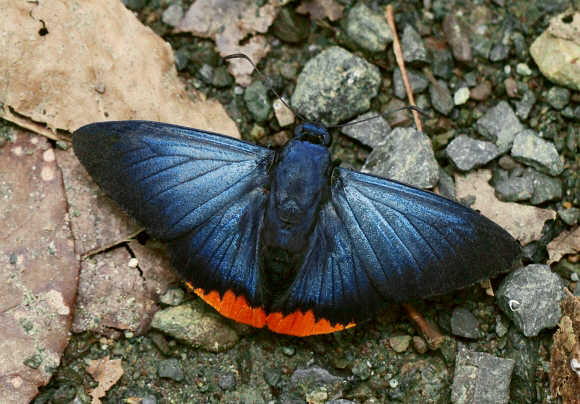
Introduction
The subfamily Pyrrhopyginae comprises 163 known species, most of which are found only in the tropical rainforests and cloudforests of South America, although a few reach as far north as Mexico, and a single species reaches Arizona. They are characterised by having bodies which are very large in proportion to the wings. Other characteristics include a massive muscular thorax, compressed abdominal segments, prominent eyes, and antennae with recurved clubs.
Several genera, including Jemadia and Elbella have a pattern of hyaline ‘windows’ on the forewings, and are marked with stripes and bands of brilliant blue and white. Other genera such as Mysarbia, Mysoria and Pyrrhopyge lack the hyaline windows, and are characterised instead by having bright pink or red markings on the head and/or on the tip of the abdomen.
There are only 2 species in the genus Chalypyge, i.e. zereda and chalybea. Neither have hyaline windows on their wings or red markings on the head or abdomen. The wings of both species are metallic steely blue, with orange edging to the hindwings. In chalybea, which is confined to Central America, there is also a narrow orange border on the forewings.
Chalypyge zereda occurs in Colombia, Ecuador and Peru. There are 6 named subspecies of which rufipectus and hygieia are found in Colombia.
Habitats
This species occurs in cloudforest at elevations between about 800-2000m.
Lifecycle
To be completed.
Adult behaviour
Males are usually seen when discovered on the ground imbibing mineralised water from wet rocks, or at damp patches of ground. They are more commonly seen in cloudy weather.
